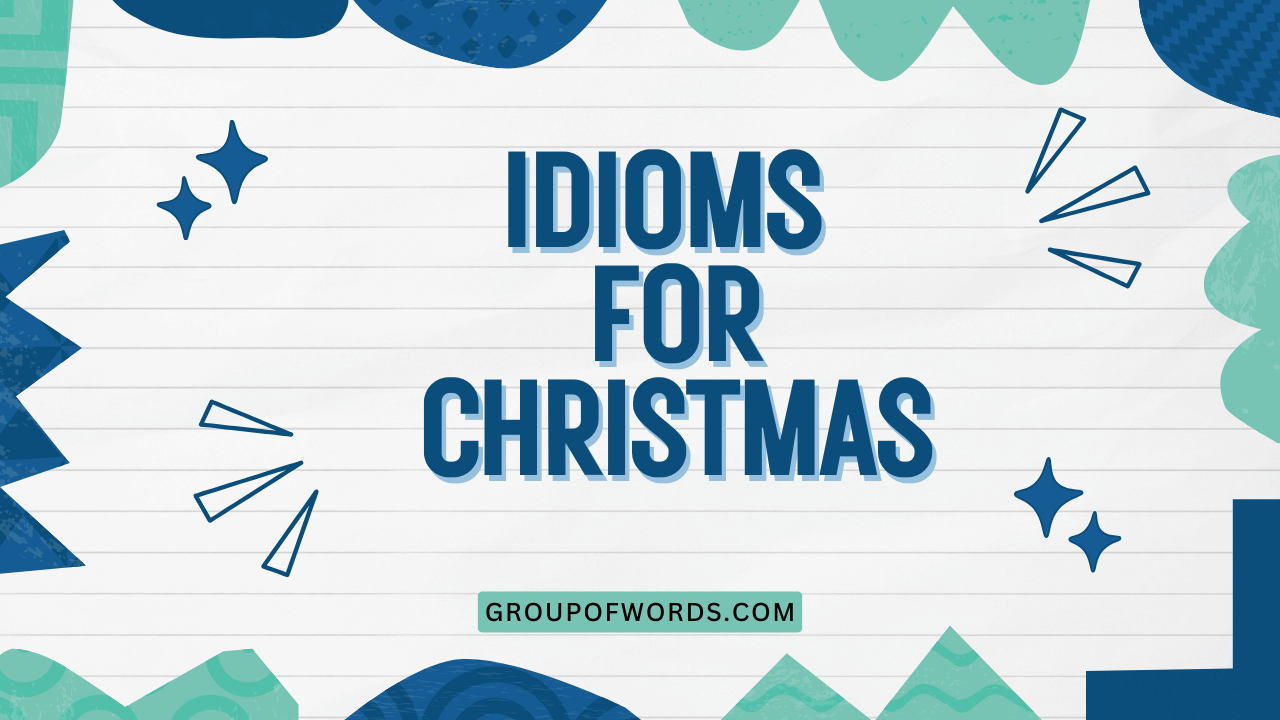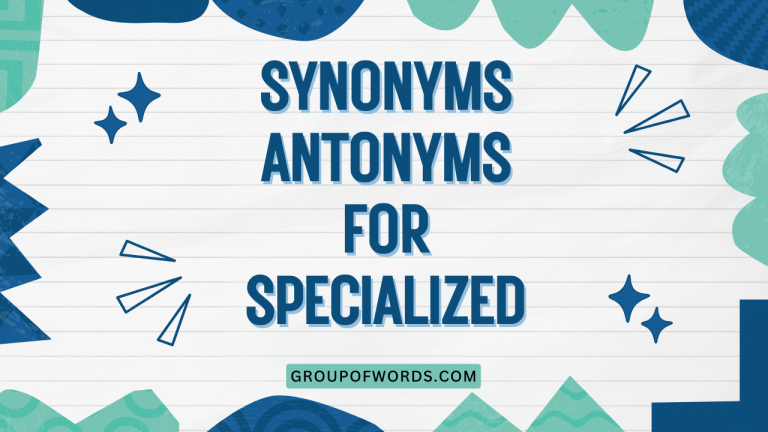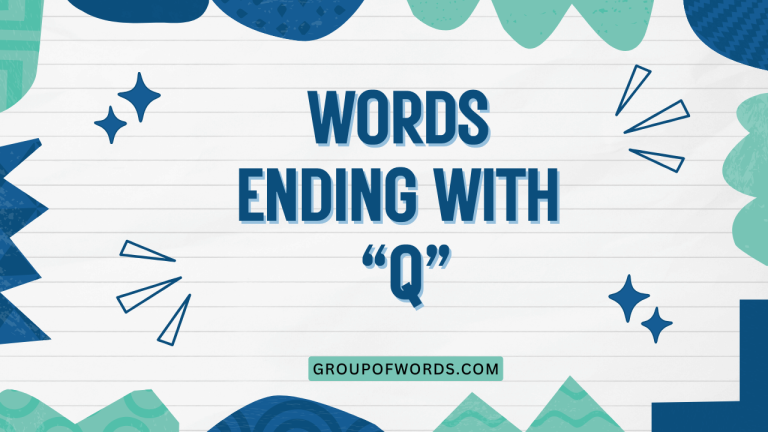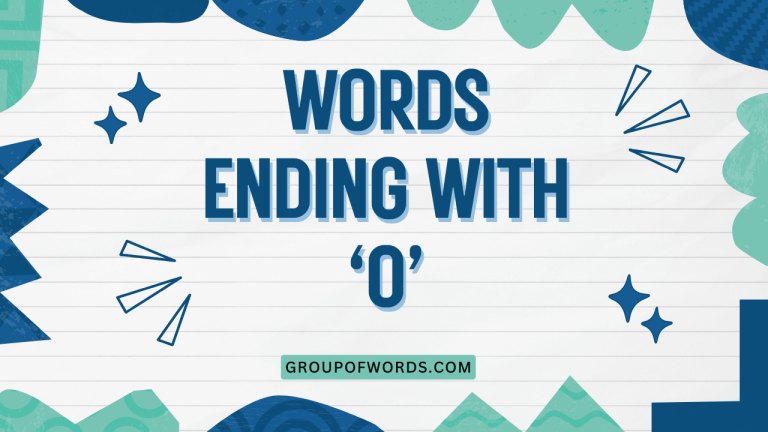Deck the Halls with Idioms: A Christmas Grammar Guide
Christmas is a time of joy, celebration, and unique expressions. While grammar provides the structure for our sentences, idioms add color and personality to our language.
Understanding Christmas-related idioms can enhance your communication skills, making your conversations more engaging and culturally relevant. This article explores a variety of festive idioms, offering definitions, examples, and practical exercises to help you master their usage.
Whether you’re an English language learner or a native speaker, this guide will equip you with the knowledge to confidently use Christmas idioms in your everyday conversations and writing.
This article is particularly beneficial for English as a Second Language (ESL) learners, students studying English grammar, and anyone who wants to enrich their vocabulary with festive expressions. By exploring these idioms, you’ll not only improve your language skills but also gain a deeper understanding of the cultural nuances associated with Christmas.
Table of Contents
- Definition of Idioms
- Structural Breakdown of Idioms
- Types and Categories of Christmas Idioms
- Examples of Christmas Idioms
- Usage Rules for Christmas Idioms
- Common Mistakes with Christmas Idioms
- Practice Exercises
- Advanced Topics in Christmas Idioms
- Frequently Asked Questions
- Conclusion
Definition of Idioms
An idiom is a phrase or expression whose meaning cannot be understood from the literal meanings of the individual words. Instead, the phrase has a figurative meaning that is known through common usage.
Idioms are a crucial part of any language, adding color, humor, and depth to communication. They often reflect cultural values, historical events, or shared experiences within a community.
In the context of Christmas, idioms draw on festive imagery, traditions, and emotions associated with the holiday season. These idioms provide a unique way to express feelings, describe situations, or convey messages related to Christmas.
Understanding and using Christmas idioms can make your conversations more engaging and help you connect with others during this special time of year.
Structural Breakdown of Idioms
Idioms, unlike regular phrases, do not follow typical grammatical rules when it comes to meaning. Their structure can vary greatly, but the key characteristic is that their overall meaning is different from the sum of their individual parts.
Let’s break down some common structural elements found in Christmas idioms:
- Verbal Idioms: These idioms contain a verb and often an object or prepositional phrase. For example, “trim the tree” uses the verb “trim” but refers to decorating the Christmas tree.
- Nominal Idioms: These idioms function as nouns within a sentence. An example is “Christmas spirit,” which represents the feeling of joy, generosity, and goodwill associated with Christmas.
- Adjectival Idioms: These idioms act as adjectives, modifying nouns. For instance, “like Christmas morning” describes something exciting or joyful.
- Prepositional Idioms: These idioms start with a preposition and often modify a verb or noun. An example could be “in the Christmas spirit,” which describes a state of mind or feeling.
The structure of an idiom is fixed, meaning the words cannot be changed or rearranged without altering the meaning or making the idiom nonsensical. The context in which an idiom is used is crucial for understanding its intended meaning.
The surrounding words and the overall situation provide clues to the figurative sense of the phrase.
Types and Categories of Christmas Idioms
Christmas idioms can be categorized based on their thematic focus and the aspects of the holiday they represent. Here are some common categories:
Idioms Related to Christmas Spirit and Joy
These idioms capture the emotional and festive atmosphere of Christmas. They often express feelings of happiness, generosity, and goodwill.
Idioms Related to Christmas Decorations and Symbols
These idioms are based on the visual elements of Christmas, such as trees, lights, and ornaments. They often describe the act of decorating or the appearance of something during the holiday season.
Idioms Related to Christmas Giving and Receiving
These idioms focus on the tradition of gift-giving and the excitement of receiving presents. They often describe generosity, surprises, and the act of sharing.
Idioms Related to Christmas Traditions and Customs
These idioms refer to specific practices and customs associated with Christmas, such as carol singing, feasting, and family gatherings. They often evoke a sense of nostalgia and tradition.
Idioms Related to Winter and Cold Weather
While these aren’t exclusively Christmas-related, they often appear during the Christmas season due to the time of year. These idioms capture the imagery and sensations of winter, such as snow, ice, and cold temperatures.
They can be used to describe the weather or to create a festive atmosphere.
Examples of Christmas Idioms
This section provides a comprehensive list of Christmas idioms, categorized for easy understanding. Each idiom is accompanied by a definition and example sentence to illustrate its usage.
Idioms Related to Christmas Spirit and Joy
These idioms capture the emotional and festive atmosphere of Christmas. They often express feelings of happiness, generosity, and goodwill.
| Idiom | Definition | Example Sentence |
|---|---|---|
| Christmas spirit | The feeling of joy, generosity, and goodwill associated with Christmas. | The town was filled with Christmas spirit as everyone prepared for the holiday. |
| Like Christmas morning | Extremely excited or joyful, as one would be on Christmas morning. | The kids were like Christmas morning when they saw the snow falling. |
| Walking in a winter wonderland | Experiencing the magical and beautiful aspects of winter, often associated with Christmas. | After the snowfall, the park felt like walking in a winter wonderland. |
| Full of cheer | Being very happy and enthusiastic, especially during the Christmas season. | She was full of cheer as she decorated the tree with her family. |
| Bah Humbug! | An exclamation of disbelief or disgust with the sentimentality of Christmas, often used humorously. | “Bah Humbug!” he joked, but secretly he loved the Christmas carols. |
| Deck the halls | To decorate a place for Christmas or another festive occasion. | We spent the afternoon decking the halls with lights and tinsel. |
| Goodwill to men | A feeling of kindness and generosity towards all people, especially during the Christmas season. | The charity drive aimed to spread goodwill to men throughout the community. |
| Tinsel town | A glamorous or artificial place, often associated with the entertainment industry, but can also refer to a heavily decorated area at Christmas. | Our street looked like tinsel town with all the Christmas lights. |
| Christmas came early | Something good or fortunate happened unexpectedly. | When she got the promotion, it felt like Christmas came early. |
| White Christmas | A Christmas where there is snow on the ground. | Everyone is hoping for a white Christmas this year. |
| Holiday cheer | The festive and joyful atmosphere associated with the holiday season. | The office party was filled with holiday cheer. |
| Peace on Earth | A wish for global harmony and the absence of conflict, often expressed during Christmas. | We should strive for peace on Earth every day, not just at Christmas. |
| The more, the merrier | The more people present, the more fun the situation will be. | “Are you sure we can fit everyone in the car?” “Absolutely, the more, the merrier!” |
| Trim the tree | To decorate a Christmas tree. | The family gathered to trim the tree with ornaments and lights. |
| Bundle up | To dress warmly in many layers of clothing. | Remember to bundle up before you go out in the snow. |
| Cozy and bright | Describing a warm, comfortable, and well-lit atmosphere, often associated with Christmas. | The living room was cozy and bright with the fireplace burning and the Christmas tree lit. |
| Jingle all the way | To be cheerful and spread joy, often associated with the sound of Christmas bells. | She was jingle all the way as she walked through the Christmas market. |
| Be a Scrooge | To be miserly or unwilling to spend money, especially during the Christmas season. | Don’t be a Scrooge; let’s all contribute to the gift for our teacher. |
| Hear those sleigh bells jingling | To be reminded of the festive sounds and atmosphere of Christmas. | Every time I hear those sleigh bells jingling, I feel a surge of Christmas spirit. |
| Cold hands, warm heart | A saying that suggests a person who is outwardly reserved may be kind and generous inside, often associated with winter and Christmas. | He may seem gruff, but he’s cold hands, warm heart, especially during the holidays. |
Idioms Related to Christmas Decorations and Symbols
These idioms are based on the visual elements of Christmas, such as trees, lights, and ornaments. They often describe the act of decorating or the appearance of something during the holiday season.
| Idiom | Definition | Example Sentence |
|---|---|---|
| Like a Christmas tree | Heavily decorated with many different items, sometimes to the point of being excessive. | She was dressed like a Christmas tree with all her sparkly jewelry. |
| Hang up one’s stocking | To prepare for Santa Claus by hanging a stocking for him to fill with gifts. | The children were excited to hang up their stockings on Christmas Eve. |
| Under the mistletoe | A tradition where people kiss when standing beneath mistletoe, a symbol of love and peace. | They shared a romantic kiss under the mistletoe at the Christmas party. |
| Christmas card perfect | Describing something that looks ideal, picturesque, and worthy of being on a Christmas card. | The snow-covered village looked Christmas card perfect. |
| Sparkle and shine | To be bright, cheerful, and full of life, often used to describe Christmas decorations or festive occasions. | The Christmas lights sparkle and shine, creating a magical atmosphere. |
| All that glitters | Something that appears attractive but may not be valuable or genuine. | All that glitters is not gold, even during Christmas. |
| Candy cane lane | A street or neighborhood that is extravagantly decorated for Christmas. | Driving down candy cane lane is a Christmas tradition for our family. |
| Wrap up warm | To dress in warm clothes to protect oneself from the cold. | Make sure to wrap up warm before going out to see the Christmas lights. |
| Light up like a Christmas tree | To become very happy or excited, showing great enthusiasm and joy. | Her face lit up like a Christmas tree when she saw the puppy. |
| The lights are twinkling | Describing the shimmering and festive effect of Christmas lights. | The lights are twinkling, creating a magical atmosphere in the city square. |
| Silver bells | A symbol of the festive and joyful sounds of Christmas. | The sound of silver bells always puts me in the Christmas spirit. |
| The star on top | The final and most important addition that completes something, like the star on a Christmas tree. | Finding the perfect gift was the star on top of a wonderful Christmas. |
| Have a holly, jolly Christmas | To have a cheerful and festive Christmas celebration. | We wish you to have a holly, jolly Christmas and a happy New Year. |
| Like a snow globe | Describing a scene that is magical and enclosed, like a Christmas snow globe. | The town looked like a snow globe with the gentle snowfall and twinkling lights. |
| A gift that keeps on giving | Something that continues to provide benefits or enjoyment over time. | Investing in education is a gift that keeps on giving. |
| Cold as ice | Lacking warmth or emotion; unfriendly. | Her response was cold as ice when he wished her a Merry Christmas. |
| A blanket of snow | A covering of snow that looks like a blanket. | The town was covered in a blanket of snow on Christmas morning. |
| Worthy of a sugarplum fairy | Describing something that is delightful, sweet, and magical, like the Sugar Plum Fairy from “The Nutcracker.” | The decorations were so charming that they were worthy of a sugarplum fairy. |
| As red as Rudolph’s nose | Very red, like the famously bright nose of the reindeer Rudolph. | After being out in the cold, his cheeks were as red as Rudolph’s nose. |
| Waiting for Santa | Eagerly anticipating a special event or surprise, like children waiting for Santa Claus on Christmas Eve. | The kids were waiting for Santa all day, barely able to contain their excitement. |
| A Christmas miracle | An unexpected and fortunate event that brings joy and hope, especially during the Christmas season. | It was a Christmas miracle when they found their lost dog on Christmas Eve. |
Idioms Related to Christmas Giving and Receiving
These idioms focus on the tradition of gift-giving and the excitement of receiving presents. They often describe generosity, surprises, and the act of sharing.
| Idiom | Definition | Example Sentence |
|---|---|---|
| It’s better to give than to receive | The act of giving is more rewarding than receiving gifts. | She always said, “It’s better to give than to receive,” and she lived by that motto. |
| Secret Santa | A gift exchange where the giver remains anonymous. | We’re doing Secret Santa at the office this year. |
| Stocking stuffer | A small gift that is placed in a Christmas stocking. | I need to find some fun stocking stuffers for the kids. |
| The gift of giving | The joy and satisfaction derived from giving to others. | She discovered the gift of giving when she volunteered at the homeless shelter. |
| Wrapped up in ribbons | Presented beautifully and attractively, like a gift wrapped with ribbons. | The proposal was wrapped up in ribbons, making it impossible to refuse. |
| A Christmas bonus | An extra payment given to employees at Christmas time. | The employees were delighted to receive a Christmas bonus this year. |
| Bless your heart | An expression of sympathy or affection, often used when someone is being generous or kind. | “You brought cookies? Bless your heart!” she exclaimed. |
| Christmas wishes | Hopes and desires expressed during the Christmas season. | We send you our warmest Christmas wishes for a happy holiday. |
| From the bottom of my heart | Sincerely and deeply felt. | I thank you from the bottom of my heart for your generous gift. |
| Spread the love | To share kindness, generosity, and affection with others. | Let’s spread the love this Christmas by helping those in need. |
| A Christmas treat | Something special and enjoyable that is experienced during the Christmas season. | Seeing the Christmas lights was a Christmas treat for the whole family. |
| Open one’s heart | To be receptive to feelings of love, generosity, and compassion. | Christmas is a time to open one’s heart to those less fortunate. |
| A gesture of goodwill | An act of kindness or generosity intended to show positive intentions. | The company’s donation was seen as a gesture of goodwill. |
| The spirit of generosity | The willingness to give and share with others, especially during the Christmas season. | He embodied the spirit of generosity by donating his time and resources to charity. |
| Count one’s blessings | To be grateful for the good things in one’s life. | During Christmas, it’s important to count one’s blessings and appreciate what we have. |
| A gift from above | Something wonderful and unexpected that feels divinely inspired or blessed. | Her recovery from the illness felt like a gift from above. |
| Reach out to others | To make an effort to connect with and help those who may be lonely or in need. | Christmas is a good time to reach out to others and offer support. |
| Pay it forward | To respond to a person’s kindness to oneself by being kind to someone else. | She decided to pay it forward by volunteering at the soup kitchen after being helped herself. |
| A token of appreciation | A small gift or gesture used to express gratitude. | The flowers were a token of appreciation for her hard work. |
| Giving back to the community | Contributing to the well-being of one’s local area through acts of charity or service. | Christmas is a great time for giving back to the community. |
Idioms Related to Christmas Traditions and Customs
These idioms refer to specific practices and customs associated with Christmas, such as carol singing, feasting, and family gatherings. They often evoke a sense of nostalgia and tradition.
| Idiom | Definition | Example Sentence |
|---|---|---|
| Home for the holidays | Returning to one’s family home for Christmas or other holidays. | I’m so excited to be home for the holidays this year. |
| Christmas Eve | The evening before Christmas Day, often celebrated with family traditions. | We always open one gift on Christmas Eve. |
| Family gathering | A meeting of family members for a special occasion, such as Christmas. | The family gathering was filled with laughter and joy. |
| Roast chestnuts on an open fire | A traditional Christmas activity, often associated with warmth and nostalgia. | They dreamed of roast chestnuts on an open fire as they sang carols. |
| Carol singing | The activity of singing Christmas carols, often in a group. | We went carol singing in the neighborhood last night. |
| Winter solstice | The day with the shortest period of daylight, often celebrated with festive traditions. | The winter solstice marks the beginning of the Christmas season for many. |
| Pull a cracker | To participate in the British tradition of pulling a Christmas cracker, which contains a small gift, a joke, and a paper crown. | We always pull a cracker at the Christmas dinner table. |
| Stuff one’s face | To eat a large amount of food, often during a festive meal. | We tend to stuff our faces with Christmas dinner. |
| Ring in the New Year | To celebrate the start of a new year, often with parties and festivities. | We plan to ring in the New Year with friends and family. |
| Auld Lang Syne | A song traditionally sung at the end of the year to remember old friends and times. | We sang Auld Lang Syne as the clock struck midnight. |
| Christmas dinner | A traditional meal eaten on Christmas Day, often including turkey or ham. | The aroma of Christmas dinner filled the house. |
| A time for reflection | A period to think about the past year and consider future goals. | Christmas is a time for reflection and gratitude. |
| Make memories | To create lasting and positive experiences with loved ones. | We want to make memories with our children this Christmas. |
| Traditions old and new | Blending established customs with new practices to create a unique celebration. | We’re combining traditions old and new to make this Christmas special. |
| Gather ’round the fire | To come together in a cozy and intimate setting, often near a fireplace. | Let’s gather ’round the fire and share stories. |
| The Nutcracker Suite | A popular ballet and musical performance often attended during the Christmas season. | We’re going to see The Nutcracker Suite this year as a family tradition. |
| Twelve days of Christmas | The period from Christmas Day to the Epiphany, celebrated with various traditions. | We’re celebrating the twelve days of Christmas with special activities each day. |
| Yule log | A traditional Christmas dessert or a large log burned in the fireplace. | We’re having Yule log for dessert this Christmas. |
| Secret family recipe | A special and cherished recipe passed down through generations. | My grandmother’s secret family recipe for gingerbread is a Christmas tradition. |
| The spirit of giving | The act of giving presents to family and friends. | Christmas is a time to show the spirit of giving. |
Usage Rules for Christmas Idioms
Using idioms correctly requires understanding their specific meanings and contexts. Here are some key rules to follow when using Christmas idioms:
- Context is Key: Always consider the context in which you are using an idiom. The surrounding words and the overall situation should provide clues to the intended meaning.
- Fixed Structure: Idioms have a fixed structure, meaning the words cannot be changed or rearranged without altering the meaning or making the idiom nonsensical.
- Audience Awareness: Be mindful of your audience. Some idioms may be more familiar to certain groups of people than others.
- Figurative vs. Literal: Remember that idioms have a figurative meaning that is different from the literal meaning of the individual words.
- Cultural Sensitivity: Be aware of the cultural nuances associated with Christmas idioms. Use them respectfully and avoid making assumptions about others’ beliefs or traditions.
The following table highlights some common mistakes and how to avoid them to ensure proper usage of these idioms.
Common Mistakes with Christmas Idioms
One common mistake is interpreting idioms literally. Because idioms have a figurative meaning, understanding the cultural context is essential to avoid misinterpretation.
Another frequent error is altering the structure of an idiom, which can change its meaning or make it nonsensical.
Also, using idioms inappropriately can sometimes be confusing or offensive. For example, using an idiom that refers to a specific religious tradition in a context where it is not relevant or respectful could be problematic.
Additionally, overuse of idioms can make your language sound unnatural or forced.
| Incorrect | Correct | Explanation |
|---|---|---|
| “He was like a Christmas.” | “He was like Christmas morning.” | The idiom is “like Christmas morning,” not “like a Christmas.” |
| “She is full of the cheer.” | “She is full of cheer.” | The correct phrase is “full of cheer,” without the article “the.” |
| “Deck the wall.” | “Deck the halls.” | The idiom is “deck the halls,” referring to decorating for Christmas. |
| “I wish peace in Earth.” | “I wish peace on Earth.” | The correct phrase is “peace on Earth,” not “peace in Earth.” |
| “The more, the happy.” | “The more, the merrier.” | The correct idiom is “the more, the merrier,” referring to the joy of having more people present. |
| “Cold hands, hot heart.” | “Cold hands, warm heart.” | The correct saying is “cold hands, warm heart,” suggesting outward reserve but inner kindness. |
| “He’s being a Scrooge McDuck.” | “He’s being a Scrooge.” | While Scrooge McDuck is inspired by Scrooge, the correct idiom is simply “being a Scrooge.” |
| “She wrapped up in bows.” | “Wrapped up in ribbons.” | The idiom is “wrapped up in ribbons,” suggesting something beautifully presented. |
| “Spread the like.” | “Spread the love.” | The correct phrase is “spread the love,” meaning to share kindness and affection. |
| “I am going home for the holiday.” | “I am going home for the holidays.” | The common idiom is “home for the holidays,” indicating a return to one’s family home. |
Practice Exercises
Test your understanding of Christmas idioms with these practice exercises. Fill in the blanks with the appropriate idiom from the list provided.
Idiom List: Christmas spirit, like Christmas morning, deck the halls, white Christmas, Secret Santa, home for the holidays, full of cheer, cold hands, warm heart, Bah Humbug!
| Question | Answer |
|---|---|
| 1. The children were excited and energetic, acting __________. | like Christmas morning |
| 2. The town was decorated beautifully; everyone wanted to ___________. | deck the halls |
| 3. Despite his grumpy exterior, he had __________. | cold hands, warm heart |
| 4. The office organized a __________ gift exchange to spread some holiday joy. | Secret Santa |
| 5. She was __________ as she sang Christmas carols with her family. | full of cheer |
| 6. He exclaimed __________, but secretly enjoyed the festive atmosphere. | Bah Humbug! |
| 7. Everyone is hoping for a __________ this year, with snow on the ground. | white Christmas |
| 8. The entire community was filled with the __________ during the Christmas season. | Christmas spirit |
| 9. I’m so glad to be __________ this year, spending time with my family. | home for the holidays |
| 10. Despite the challenges, the town was radiating __________. | Christmas spirit |
Exercise 2: Choose the correct idiom to complete each sentence.
| Question | Options | Answer |
|---|---|---|
| 1. She was so excited, her face ______ when she opened her presents. | a) rang the bells b) lit up like a Christmas tree c) trimmed the tree | b) lit up like a Christmas tree |
| 2. It’s important to ______ to those less fortunate during the Christmas season. | a) reach out to others b) jingle all the way c) bundle up | a) reach out to others |
| 3. The snow-covered village looked ______. | a) Christmas card perfect b) like a snow globe c) under the mistletoe | a) Christmas card perfect |
| 4. We always ______ at the Christmas dinner table. | a) pull a cracker b) stuff our faces c) ring in the New Year | b) stuff our faces |
| 5. They shared a romantic kiss ______. | a) walking in a winter wonderland b) under the mistletoe c) like a Christmas tree | b) under the mistletoe |
| 6. The students decided to ______ and donate their time to those in need. | a) pay it forward b) be a scrooge c) hear those sleigh bells jingling | a) pay it forward |
| 7. The family was eager to ______ with lights and ornaments. | a) bundle up b) trim the tree c) cozy and bright | b) trim the tree |
| 8. The store windows were ______, drawing everyone in. | a) silver bells b) sparkle and shine c) cold as ice | b) sparkle and shine |
| 9. Every year we ______ with friends and family. | a) count one’s blessings b) ring in the New Year c) gather ’round the fire | b) ring in the New Year |
| 10. The holiday season is the perfect time to ______ and appreciate what we have. | a) cold hands, warm heart b) count one’s blessings c) the spirit of giving | b) count one’s blessings |
Advanced Topics in Christmas Idioms
For advanced learners, exploring the etymology and cultural context of Christmas idioms can provide a deeper understanding of their usage. Consider researching the origins of idioms like “Bah Humbug!” or “White Christmas” to uncover their historical and cultural significance.
Additionally, analyzing how Christmas idioms are used in literature, film, and music can offer insights into their expressive power and cultural relevance.
Furthermore, comparing Christmas idioms across different cultures and languages can reveal interesting similarities and differences in how the holiday season is perceived and celebrated. For example, exploring how other languages express the concept of “Christmas spirit” or “gift-giving” can broaden your linguistic and cultural awareness.
Frequently Asked Questions
- What is the difference between an idiom and a literal expression?
An idiom is a phrase whose meaning cannot be understood from the literal definitions of its individual words. Instead, it has a figurative meaning known through common usage. A literal expression, on the other hand, means exactly what it says, with each word contributing to the overall meaning.
- Why is it important to learn idioms?
Learning idioms enhances your communication skills by adding color, depth, and cultural relevance to your language. It helps you understand native speakers better and express yourself more effectively.
- How can I improve my understanding of idioms?
To improve your understanding of idioms, read widely, listen to native speakers, and pay attention to the context in which idioms are used. Keep a notebook of new idioms and practice using them in your own conversations and writing.
- Are idioms the same in all English-speaking countries?
No, idioms can vary between different English-speaking countries. Some idioms may be more common in British English than in American English, and vice versa. It’s important to be aware of these regional differences when using idioms.
- Can I create my own idioms?
While you can be creative with language, idioms are generally established phrases that are recognized and used by a community of speakers. Creating your own idioms may not be effective unless they are adopted and widely
adopted and widely understood.
Conclusion
Christmas idioms are a delightful and colorful part of the English language, adding depth and cultural richness to our conversations during the festive season. By understanding their meanings, usage rules, and common pitfalls, you can confidently incorporate these expressions into your everyday communication.
Whether you’re decorating the halls, spreading Christmas cheer, or simply enjoying the company of loved ones, mastering Christmas idioms will enhance your ability to connect with others and fully embrace the spirit of the holiday season. So, go forth and deck the halls with idioms, and may your Christmas be merry and bright!






